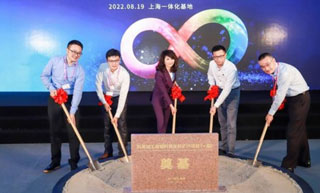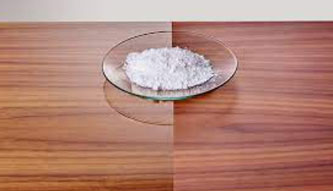Expansions: Covestro invests in production of sustainable PCs in Shanghai/Thailand; Evonik increases capacity for matting agents in Taiwan

Recycling plastic waste through mechanical processes such as sorting, grinding, re-granulating and compounding is an essential part of the circular economy. German materials firm Covestro says it plans to set up its first dedicated line for the mechanical recycling (MCR) of polycarbonates at its integrated site in Shanghai. The new MCR line will address the growing demand for more sustainable solutions, in particular with Post-Consumer-Recycled (PCR) products, to be used primarily for the compounding step in the manufacture of electrical and electronic products, automotive applications, and consumer goods.
The line, which represents an investment of more than EUR27 million, will be capable of delivering more than 25,000 tonnes/year of PCs and blends containing mechanically recycled content when it is planned to be commissioned in 2023. Overall, the company aims to be capable to deliver more than 60,000 tonnes/year of PCs with recycled content in Asia Pacific until 2026.
"The MCR production line is another exciting step we have taken to fulfill our commitment toward a circular economy and achieve our goal to become operational climate neutral by 2035," said Sucheta Govil, Chief Commercial Officer of Covestro. "Recycling plastic waste is absolutely essential to the circular economy, and addresses one of the major global challenges we face together as a society. We will continue to invest in expanding and improving our capacity for recycled plastics, and leading the industry to create materials with higher recycled content."
"To meet the rapid growth in demand for more sustainable and circular solutions from our downstream customers, we will continue to invest in expanding our capabilities," said Lily Wang, Head of Covestro’s Engineering Plastics segment, at the groundbreaking event. "This MCR production line is the latest example of our efforts in this regard and signals our commitment to driving the transition to more sustainable products in this region, especially in China."
Covestro adds it will also be repurposing an existing compounding line at its Map Ta Phut site in Thailand to a plant for mechanical recycling. The conversion of the plant is scheduled to be accomplished by the end of 2022 and continue to pave the way and meet market demand for PCs from post-consumer recycled (PCR) content across multiple industries in the ASEAN region. Based on the current forecast, the unit will supply up to 10 percent PCR based product of its annual production volume by 2030.
Dr. Nicolas Stoeckel, Head of Operations in the Engineering Plastics segment, said: "The new developments in China and Thailand are not only about investing in capacity increase, but also about improving our capability to produce more products with higher recycled content and more consistent quality. These developments will further strengthen Asia’s reputation as the world’s leading producer of polycarbonate PCR grades."
The two facilities in Shanghai and Map Ta Phut will boost Covestro’s output of PCR polycarbonates Makrolon R and Bayblend R, which contain up to 75% recycled content and can contribute to a carbon footprint reduction of up to 50% while meeting performance and eco-labels’ requirements.

In other news, Germany-based Evonik’s Coating Additives business line is expanding the production capacity of its Acematt precipitated matting agents at its manufacturing facility in Taiwan. The significant capacity increase will help to meet the rising demand for matting agents in Asia, with the capacity expansion scheduled for completion by the second half of 2023.
The matting agents manufactured in Taiwan are said to exhibit the same properties as the products which are currently manufactured at Evonik’s production site in Bonn, Germany, it adds.
The Acematt brand offers a variety of products to the formulator finding the right balance of effectiveness for matting properties and easy integration into the
coating system. Furthermore, according to Evonik, products can enable formulators to reach the full spectrum of matting levels from semi gloss to ultra-deep matt, and the various industrial and transportation application areas range from textile to plastic, leather, can and coil coatings.
(IMA)Subscribe to Get the Latest Updates from IMA Please click here
©2022 Injection Moulding Asia. All rights reserved.
















